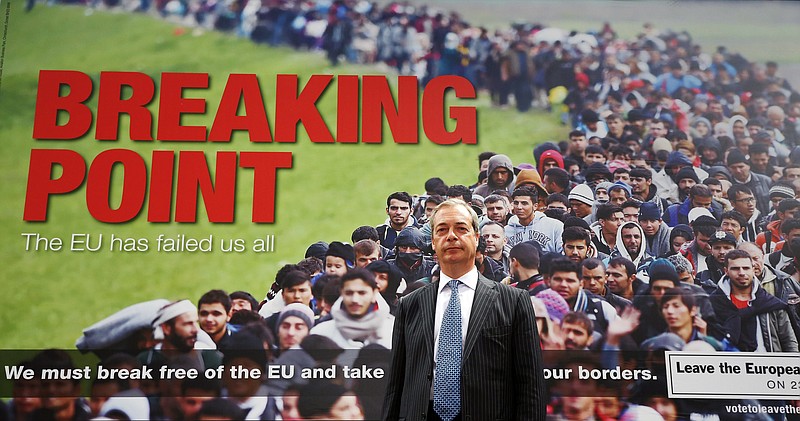View other columns by David Cook
This was supposed to be the age of shared humanity.
We were supposed to be heading into the compassion years, the frontier edge of some new world order of unity, our sensibilities trending toward consciousness. Empathy without borders. Think global, act local. Fukuyama's "The End of History." Friedman's flat world. That sort of thing.
We gave thanks to the internet, which transcends time and space, connecting us in ways we've never been connected before. We can now Facetime friends in Beijing, email vineyard owners in Italy, Google-map the Serengeti. We were becoming gods, with the whole world in our hands.
Such knowledge.
Such connection.
Is it all a fallacy?
Around the world, hostilities are increasing. There is something under the covers, growling, from here to Europe to Asia and back again. It's anti-democratic and anti-humanitarian, speaks not the language of mercy and wisdom, but of brittle crudeness.
And it's on the rise.
"The 10th consecutive year of decline in global freedom," reports the Freedom House.
Using human rights, political freedoms and the health of economies, Freedom House measures the state of global democracy, which is in retreat.
"The world was battered in 2015 by overlapping crises that fueled xenophobic sentiment in democratic countries, undermined the economies of states dependent on the sale of natural resources, and led authoritarian regimes to crack down harder on dissent," its recent report states.
Thursday, the jilting of democracy continued, as British citizens voted to leave the European Union. Reading the news felt like a political 9/11, this gasping, day-after moment when the modern world will no longer be the same.
Created only decades after Europe firebombed itself through two world wars, the EU represented the best of what 20th-century nations can do together: share borders, currency, peacemaking efforts and culture. Some even thought the EU proved that nation-state warfare would become obsolete.
From such potential, Britain has seceded.
"And for what, exit fantasist? For what?" wrote The Times columnist Philip Collins in London on Friday. "The notion that Britain was not free until the early hours of this morning is the single most childish claim I have ever heard in British politics."
At risk now is the future strength of Britain, the possible breakdown of the United Kingdom, and the further fragmentation of Europe. Into such darkness Britain triumphantly trod on Thursday, prodded by fear-mongering, anger and a muddy, emotional call for "independence."
"The emptiest campaign slogan, the self-satisfied bluster of a fluent intellectual dwarf," Collins continued. "It is a victory but a victory from which it is going to take an age to recover."
Britain's exit feels timely. After all, this is the age of Trump and his vision of a pure-blood America. The age of Putin, and Greece's Golden Dawn. The age of Orlando and Paris. Of ISIS and its specialized cruelty.
(All this happens in small ways, too. At the beach last week, we saw a woman swimming in the Gulf; she had a swastika tattoo on her left shoulder, which stopped me in my tracks. My son, shocked, looked away. Driving home up I-65, we passed Confederate flags large and small, then arrived to the campaign slogan of an Ocoee politician: "Make America White Again.")
Britain's exit, once thought impossible, could be a harbinger of this November and a Trump presidency.
"A great thing," Trump said of the British exit.
Underground for a while, racism and nativism are returning, pounding their fists on the table, licking their chops. In this age of unraveling, we are left, once more, with the last and only card on the table.
Not the internet. Not political unions.
It is the human conscience.
The human heart.
That's where the struggle between fear and love is always waged. Where we fight for our better selves. That's the place we find the grace and courage, not to retreat or exit, but wade further into the messy yet beautiful realm of how to love our neighbors as ourselves.
"We have inherited a large house, a great world house in which we have to live together," Dr. Martin Luther King Jr. wrote in 1967. "Black and white, Easterner and Westerner, Gentile and Jew, Catholic and Protestant, Moslem and Hindu - a family unduly separated in ideas, culture and interest, who, because we can never again live apart, must learn somehow to live with each other in peace."
David Cook writes a Sunday column and can be reached at dcook@timesfreepress.com or 423-757-6329.

